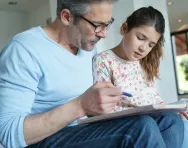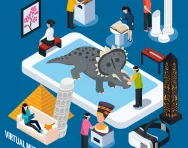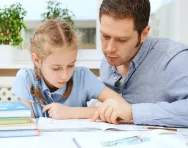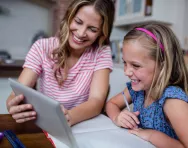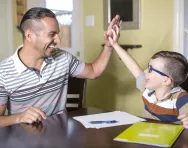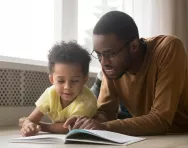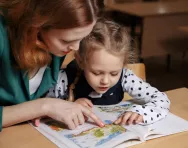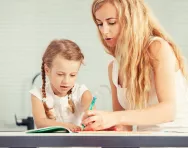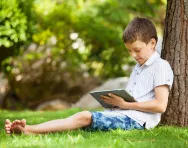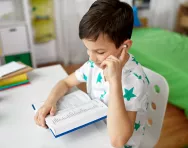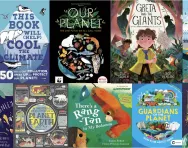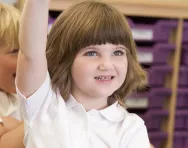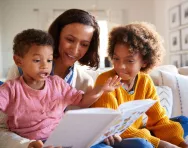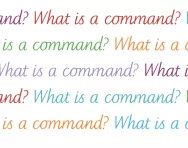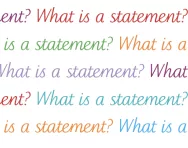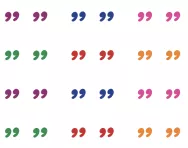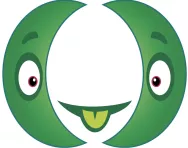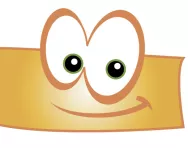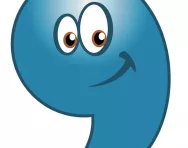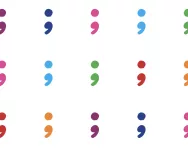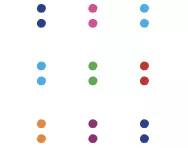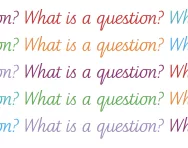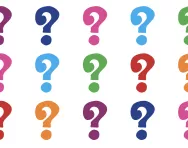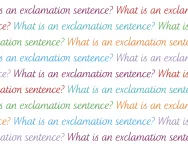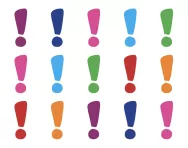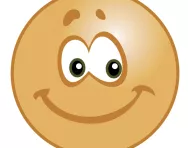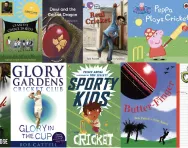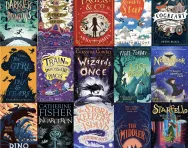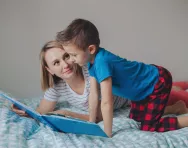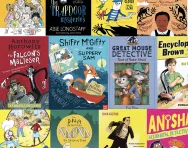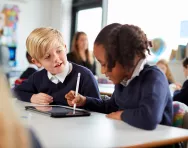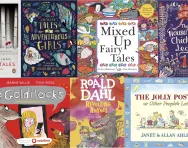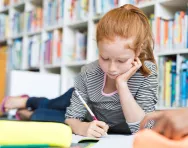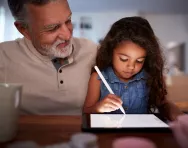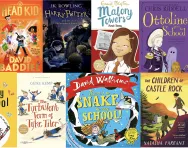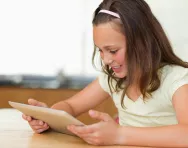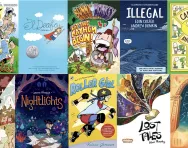English articles
Interviewing to write a biography
Writing an in-depth profile of a grandparent or family friend will help your child develop interview skills, learn to write up notes and introduce them to family heritage, stories and legends that they might never have heard! Use our suggested questions to help set up a conversation to remember.
Year 6 maths and English key topics for home education
If you've decided to home educate your Y6 child or spend more time supporting their learning from home, you might be feeling a little overwhelmed because your (not so) little person is set to start secondary school in September and you want to make sure they’re in a really good place academically. Don't panic! Phoebe Duffy (mum, teacher and education writer), shares her advice for home-schoolers.
50 of the best virtual trips and educational experiences for families
In this day and age, we may be spending more time indoors but thanks to our laptops and devices we can let the world come to us instead – take a trip round Frida Kahlo’s kitchen, share some chocolate cake with Michael Rosen and journey to the International Space Station with our pick of 50 of the best virtual trips and educational experiences. By Hetty Walton
Year 5 maths and English: how to support your child at home
Teacher and parent Phoebe Duffy highlights seven key maths and English skills to focus on with your Year 5 child, helping them have a successful year at school.
20 of the best live streams for kids
Help your primary-age child stay educated and entertained with our round-up of the best live streams for kids.
7 English and maths focus areas for Year 4 children
Teacher, education writer and mum Phoebe Duffy shares her tips about what to focus on with Year 4 children to support their learning at home.
Supporting your Year 3 child's learning at home
We all want to support our children's learning in the best way possible, so we asked mum-of-three Phoebe Duffy, an experienced primary school teacher and education writer, what to focus on with your Year 3 child to ensure that you're consolidating what they're working on at school.
7 key ways to support your Year 2 child's learning
With KS1 SATs on the horizon, not to mention the step up to KS3 at the end of the year, we asked primary-school teacher, education writer and mum of three Phoebe Duffy to highlight the key skills to focus on with your Year 2 child.
6 key areas for supporting your Reception child's learning
Primary teacher and parent Jennifer Smith shares six key areas and skills to work on at home with your Reception child, supporting what they're learning at school.
7 key areas for supporting your Year 1 child with maths and English
Primary-school teacher, education writer and mum of three Phoebe Duffy highlights the key skills children learn in Year 1, and how you support their learning at home.
Best reading apps for kids
Encourage and develop your child's passion for reading with these brilliant book apps for kids.
How to teach your child to use a dictionary
Learning to use a dictionary is an important curriculum skill and will help your child expand their vocabulary. Here's how to help them find their way around it.
Best environmental books for kids
Empower your child to make a difference with our pick of the best children's books about the environment. From plastic pollution to climate change and the work of activists and campaigners, we highlight the best reads for young eco-warriors.
What is oracy?
Speaking and listening may not be formally assessed in primary schools, but they’re vital skills for every child. Here’s why – and how to encourage oracy.
9 easy tips to help your child enjoy reading
It's never been harder for parents and teachers to inspire children to read – we're competing with shiny screens and addictive games, and a child's interest can change like the weather! In How to Raise a Reader, Pamela Paul and Maria Russo describe unexpected, innovative ways to introduce your child to the wonders of the written word.
What is a command?
Command sentences and imperative verbs explained for parents, with examples and details of how commands are taught as part of the primary-school grammar curriculum.
What is a statement?
A parents' guide to statements, the most common sentence type, with information about how they are taught as part of the primary-school curriculum.
What are speech marks?
Understand how speech marks (or inverted commas) are used when punctuating direct speech with our grammar guides for primary-school parents.
What is an ellipsis?
An ellipsis (sometimes referred to as dot dot dot...) is a punctuation mark we use to indicate that words are missing. We explain how the ellipsis is introduced in primary school in our guide for parents.
What is parenthesis?
We explain parenthesis and parentheses (or brackets) and how children are introduced to the different ways to add information to a sentence as part of the primary school curriculum.
What is a dash?
Understand how dashes are taught in the primary school grammar curriculum with our parents' guides to punctuation.
What is a comma?
Understand how commas are introduced to primary-school children with our guide to KS1 and KS2 grammar.
What is a semi-colon?
Understand how semi-colons are taught in the primary-school classroom with our parents' guides to grammar and punctuation.
What is a colon?
Understand how colons are introduced and taught in the primary-school classroom with our parents' guides to grammar and punctuation.
What is a question?
Find out how, what and when children are taught about question marks in primary school in our grammar and punctuation guide for parents.
What is a question mark?
Understand how question marks are explained and taught in the primary school classroom with our parents' guide to punctuation and grammar.
What is an exclamation sentence?
Understand the primary curriculum definition of an exclamation sentence with our parents' guide to primary-school grammar.
What is an exclamation mark?
Understand how to punctuate exclamation sentences and how to communicate sudden and strong emotion in writing with our parents' guide to exclamation marks.
What is a full stop?
Children start learning about punctuation in Reception and Year 1 when they are introduced to full stops and their use. Understand how and when your child learns to use full stops correctly with our parents' punctuation guide.
Best cricket books for children
The Cricket World Cup is one of the most-watched sporting events in the world. If your child has been inspired, harness their enthusiasm with our pick of the best books for kids who love cricket, chosen by primary school teacher and children's literature enthusiast Scott Evans. These cricket-focused reads will knock them for six!
Best fantasy adventure books for kids
Are you ready to enter some magical new worlds, exploring the depths of the sea, dark forests, ancient civilisations and weird and wonderful landscapes? On your travels you're sure to meet some strange characters, lots of brave heroes and heroines and a few sinister creatures wrecking havoc... It's time to head somewhere far, far away for roller-coaster adventures with our pick of the best fantasy world books for primary school children.
9 reasons kids struggle with reading – and what you can do about it
Not all children take to books easily. If your child finds reading tricky, read our guide to the problems they might be having.
Best detective stories for KS1 kids
Get your magnifying glass out and your thinking cap on: our selection of the best detective stories and books for KS1 kids will keep you guessing until the very last page! Packed with illustrations and plot twists, this selection of sleuth reads is perfect for newly confident readers.
Best grammar and punctuation apps for kids
The current National Curriculum puts a lot of emphasis on English grammar. We've rounded up the best apps to help your child get to grips with punctuation, parts of speech, tenses and more.
Best traditional tales books for kids
Whether you like your fairy stories traditional or twisted, retold for modern readers or classic, the perfect length for bedtime reading or in book form, our selection is packed with great options. Introduce your primary-school child to some tales as old as time – and fall in love with some new favourites, too.
Why writing book reviews is great for kids
Writing book reviews can help your child engage more deeply with what they're reading, find their next favourite series or author and develop their writing skills. Georgina Atwell, founder of kids' book review website Toppsta, offers her tips for helping your child share their love of reading with other bookworms.
Best handwriting apps for kids
Handwriting is a vital skill for primary school children to master. We've rounded up the best apps to help your child learn. It’s always best to check with your child’s teacher before introducing a handwriting app to ensure it complements – rather than contradicts – the methods they’re using at school.
Best books for kids who love school stories
The saying goes that school days are the best of your life. So much so that some of us (like myself!) stay in them and become teachers. Read on to find out if these characters had the best days of their lives in their magical, intergalactic and incredible schools with these suggestions from primary school teacher and avid children's literature reader, Scott Evans.
Best word puzzle apps for kids
Help your child brush up on their spelling, phonics and vocabulary skills with these brilliant games-based apps.
Best books for kids who love comics
Comics, graphic novels, Marvel, DC... a world that children know lots about, even more than many adults! Primary school teacher and children's literature enthusiast Scott Evans takes us on a tour of his favourite kids' books for comic-lovers.

